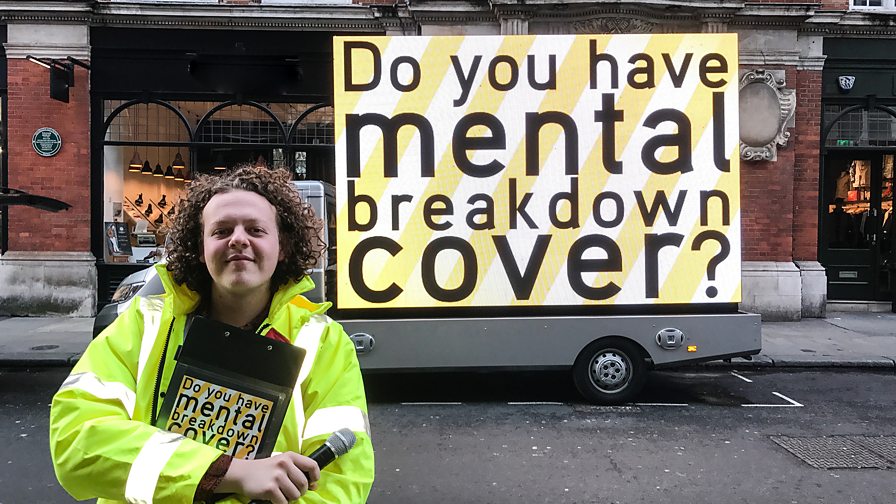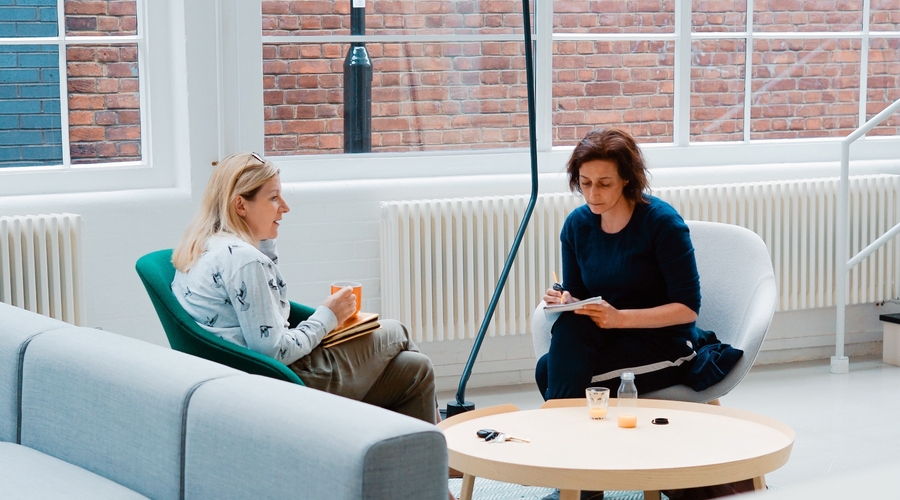People who work in TV are particularly prone to work-related anxiety. Pippa Shawley examines what is being done to help
Working in TV can mean realising a dream. From meeting interesting people to attending glitzy award ceremonies, the television industry is, undoubtedly, an exciting place to work. But, amid shrinking budgets, long hours and a largely freelance working culture, what once looked like a fulfilling career can turn out to involve an unbearable toll on our mental health.
A recent report by Ulster University and the wellbeing charity Inspire found that people working in Northern Ireland’s creative industries were three times more likely to suffer from mental ill-health than the general population. Anxiety and depression were the most commonly diagnosed disorders.
A similar study conducted in Australia in 2015 showed that 44% of people working in the country’s entertainment industry had moderate to severe anxiety, a figure 10 times higher than for the general population. The number of people experiencing depression was five times higher than the national average.
While the UK television industry has not been surveyed to the same extent, the findings of the Australian report galvanised the Film & Television Charity to launch a dedicated helpline earlier this year. It offers support for those experiencing depression, anxiety, bullying, harassment and debt problems, among other issues.
“I think the majority of people who work in the industry absolutely love [it] because it’s so creative and energetic,” says Rachel Hillman, the charity’s director of grants and programme development. “But, at the same time, we very much get the message that it can be very tough and very lonely. And I think this is exacerbated by an increasing freelance culture, so that there aren’t the kind of support systems that more often tend to be present in paid employment, especially in larger organisations.”
The line, which is run by trained staff, received around 150 calls in its first month. The majority of callers used it as a sounding board for a particular problem. Where appropriate, callers may be offered therapy, financial aid or other forms of support.
According to Ofcom estimates, 30,000 freelancers work across the UK’s television industry. For those not in permanent roles, this can mean the absence of benefits such as sick pay and pensions, as well as less job security, minimal management and irregular working hours.

BBC Three's Happy Man
(Credit: BBC)
In an already competitive industry, it can feel difficult to talk to an employer about a mental health issue or a negative experience. “You have a fear that you’re going to be [seen as] this absolute problem child, and that no producer’s ever going to want to work with you again because you’re kicking up a fuss all the time,” admits writer, comedian and presenter Jack Rooke.
“There’s nothing more depressing than being told ‘take it or leave it’,” adds Paul Evans, assistant national secretary of industry trade union Bectu. “A lot of people in this industry spend all of their lives structuring them so that they never get put into a position where someone says ‘take it or leave it’.”
The union’s Eyes Half Shut campaign is currently lobbying the film and television industries to end the culture of long working hours, which can be harmful to both mental and physical health.
Those experiencing mental ill-health should seek professional advice, but, when it comes to wellbeing, there are some simple steps that everyone can follow. Mental health campaigner Natasha Devon admits that being a self-employed “chronic overworker” means she finds it hard to stop. “I delegated my working hours to my partner and if it was, say, 10:00pm and he could see that I was still working, he could say to me: ‘Enough now, you’ve finished.’”
She’s now campaigning for mental health first aid training to become mandatory in all workplaces to help freelancers, as well as employees, enjoy a healthier working environment.
For Jack Rooke, having regular conversations with commissioners and producers has helped iron out situations where the comedian has felt anxious. He’s also benefited from having agents whose job it is to look out for him. “If I ever have any issues on a job, they are my first port of call because that’s my HR manager, that’s my confidant,” he explains.
"TV can be very pressured, very bullying and there are not a lot of options for talking about how you feel"
Looking after the mental health of employees is good business practice. Last year, the Prime Minister commissioned an independent review into how employers can better support the mental health of all people currently in employment.
The report found that poor mental health costs the British economy up to £99bn each year. The cost to employers was between £32bn and £42bn. Over half of this cost comes from ‘presenteeism’ – where individuals are less productive due to mental ill-health while in work.
A further review by Deloitte found that the return on investment of workplace mental-health interventions was “overwhelmingly positive”. The average return on each £1 spent was £4.20.
For small production companies, the idea of creating a healthy working environment might seem daunting, given the external pressures. But for Jonathan Stadlen, Managing Director of indie Knickerbockerglory, the solution was simple. “TV can be very pressured, very bullying and there are not a lot of options for talking about how you feel. I’ve tried to do the opposite of that.”
Before setting up the business, Stadlen was ready to quit TV. “I was having a pretty horrible time, and the working environment was challenging, to say the least.” He toyed with the idea of becoming a vicar – “to which my wife said: ‘Absolutely no fucking way.’” His business plan to rent sailing boats had already been accepted when the opportunity arose for him to start his own company.
He used his negative experiences to build a new working culture, where people would look forward to coming to work. At Knickerbockerglory, which Broadcast last year crowned the best place to work in TV, staff benefit from an open-plan office where talking is encouraged, and parents are offered flexible working hours. There are also regular social activities, including barbeques, a company choir, annual sailing trips abroad and parties. A health insurance policy allows staff to access therapy should they need it.
While it’s harder to offer the same opportunities to freelancers, Stadlen has developed a unique scheme where end-of-year profits are split between staff, freelancers and charities. Having worked with almost 300 freelancers last year, it isn’t possible to base bonuses on performance reviews. Instead, every freelancer is rewarded based on the length of time they have spent with the company, regardless of their role.
“So, at the end of the financial year, if you’re a runner or series producer, and you’d been with us for the whole of last year, you’d have got £2,500, which I think is quite good.”
Whether that helps the company produce better programmes is hard to quantify, but Stadlen says it has certainly had an impact on people wanting to work on the programmes.
“We’re probably doing as well as other people [making programmes],” he suggests, “but the most important thing is that you wake up in the morning happy, not thinking, ‘Shit, I can’t go to work.’ Then, we wouldn’t have any programmes at all.”
Thriving at work
The ‘Thriving at Work’ report recommends that employers implement ‘mental health core standards’ to achieve a healthier working environment:
- Producing, implementing and communicating a ‘mental health at work’ plan
- Developing mental health awareness among employees
- Encouraging open conversations about mental health and the support available to employees who are struggling
- Ensuring employees have a healthy work/life balance, opportunities to develop and good working conditions
- Encouraging good people management
- Routinely monitoring the mental health and wellbeing of employees
Resources and support
- The Film & Television Charity’s free and confidential support line is open 24/7: 0800 054 00 00
- Mental Health First Aid England provides training on how to spot the early signs of poor mental health, as well as how to speak to colleagues and how to recommend further support: mhfaengland.org.uk
- Mental health charity Mind has a range of advice for employers and employees on encouraging wellbeing in the workplace: mind.org.uk/workplace/
- If you are struggling you can call Samaritans at any time for free on 116 123 or email jo@samaritans.org







